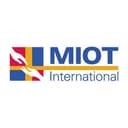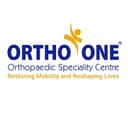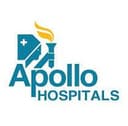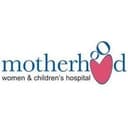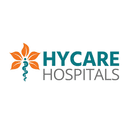Board Certified Cardiology Pharmacist (BCCP)
OR
Prepared by Docthub Courses Team ∣
Last updated on 26 Feb 2025
Overview
Board Certified Cardiology Pharmacist (BCCP) is a voluntary credential certification that validate a pharmacist who has the advanced knowledge and experience to optimize focused patient outcomes on cardiovascular disease prevention and treatment. The BCCP certificate examination is conducted by the Board of Pharmacy Specialties (BPS) in United States. It is suitable for pharmacists who are specialized in direct patient care to ensure safe and effective use of medications in patients with cardiovascular disease, as members of interprofessional health care teams.

Table of Content
What is a Board-certified-cardiology-pharmacist?
A Board-Certified Cardiology Pharmacist (BCCP) is a pharmacist who specializes in the treatment and care of patients with cardiovascular diseases. They work closely with healthcare teams to ensure that medications are used safely and effectively in preventing and managing heart-related conditions.
Highlights
| Particulars | Board-certified-nuclear-pharmacist |
| Course Type | Certificate Course |
| Duration | Becoming initially certified as a BCCP typically takes around 7 years. |
| Eligibility | Candidates must graduate from an accredited pharmacy program and hold a Doctor of Pharmacy (Pharm.D.) degree, maintain an active pharmacy license, and fulfil the required practice experience in cardiology. |
| Admission Process | After meeting eligibility requirements, candidates can apply to take the BCCP exam. Recertification: BCCPs must renew their certification every seven years by either passing a recertification exam or completing continuing education.
|
| Fees | The fees associated with becoming a BCCP are as follows: Initial Certification Fee: $600 USD. Annual Certification Maintenance Fee: $125 USD per year for the first six years. Recertification Fee: $400 USD in the seventh year |
| Colleges | Board of Pharmacy Specialties (BPS) |
| Job Roles | Clinical Cardiology Pharmacist Hospital Pharmacist Pharmacy Educator Research Scientist Regulatory Affairs Specialist Consultant Pharmacist |
Eligibility
To be eligible for Board Certification in Cardiology Pharmacy (BCCP), applicants must fulfill a few essential requirements. They must have graduated from a pharmacy program accredited by the Accreditation Council for Pharmacy Education (ACPE) or may have completed a program outside of the United States that meets the qualifications required to practice pharmacy in the relevant jurisdiction. In addition, candidates must hold a valid, active pharmacy license or registration. Regarding practice experience, applicants must meet one of the following criteria: they can either have at least four years of Cardiology Pharmacy experience within the past seven years, with at least half of their time focused on areas covered by the exam content outline; or they may have completed a PGY1 pharmacy residency within the past seven years, followed by two years of Cardiology Pharmacy practice; or alternatively, they could have completed a PGY2 pharmacy residency in Cardiology Pharmacy within the past seven years.
Duration
Becoming initially certified as a BCNP typically takes around 7 years. This includes completing your Pharm.D. Degree, gaining at least 4,000 hours of hands-on experience in nuclear pharmacy, and successfully passing the BCNP exam.
Fee
Certification Application Fees:
- First-time applicants: $600 USD
- Certification exam retake: $300 USD (only for those who failed within the past year)
Annual Certification Maintenance Fees:
- $125 USD for years 1–6 of certification cycle.
- No fee required in the 7th year (recertification year).
- If granted an extension, $125 USD applies in year 8.
- A $5 USD late fee applies if not paid by July 1.
Who Should Do This Course?
The Board-Certified Cardiology Pharmacist (BCCP) certification course is ideal for the following individuals:
- Pharmacists: Those who are already practicing and wish to specialize in cardiology to better support patients with cardiovascular diseases.
- Pharmacy Residents: Individuals who have completed or are completing a pharmacy residency program in cardiology or a related field.
- Clinical Pharmacists: Those working in hospitals, clinics, or other healthcare settings who want to enhance their expertise in managing cardiovascular medications.
- Pharmacy Students: Those who are planning their career paths and have a strong interest in cardiology.
- Healthcare Professionals: Other professionals in the medical field who wish to gain a deeper understanding of cardiology pharmacotherapy.
Why Study This Course?
Becoming a Board Certified Cardiology Pharmacist (BCCP) offers several benefits:
- Gain expert knowledge in managing cardiovascular medications.
- Develop specialized knowledge in managing heart-related conditions, making you a valuable asset to healthcare teams.
- Enhance your career prospects and open up new opportunities for growth.
- Work with healthcare teams to ensure the safe and effective use of medications.
- Boost your credibility and recognition as a skilled cardiology pharmacy professional.
Admission Process
For admission, applicants must ensure they meet all Board Certified Cardiology Pharmacist eligibility requirements before submitting their application. In the continuous testing format, all criteria must be met before applying. For the windowed testing format, candidates must complete the requirements before taking the exam. Once eligibility is confirmed, applicants can sit for the Cardiology Pharmacy certification exam, and if they pass, they will earn the title of Board Certified Cardiology Pharmacist.
Syllabus
The Board Certified Cardiology Pharmacist (BCCP) subjects covered in the syllabus are:
| Subjects covered: |
Cardiovascular Pharmacotherapy Clinical Cardiology Pharmacokinetics and Pharmacodynamics Patient Assessment Evidence-Based Medicine Cardiovascular Emergencies Pharmacogenomics |
Scope
As a Board Certified Cardiology Pharmacist (BCCP), you'll play a crucial role in patient care by ensuring medications are used safely and effectively for those with cardiovascular conditions. This involves working closely with healthcare teams to create, implement, and monitor personalized treatment plans that meet each patient's unique needs.
Further Study Options
After becoming a Board Certified Cardiology Pharmacist (BCCP), you can further enhance your skills and career with options like:
- PGY2 Residency in Cardiology Pharmacy
- Master of Pharmacy (M.Pharm): Specialize in areas like Pharmacology, Pharmaceutics, or Drug Regulatory Affairs.
- MBA in Pharmaceutical Management
Career Opportunities after This Course
With a Board Certified Cardiology Pharmacist (BCCP) certification, you can explore various career opportunities in both clinical and non-clinical settings. Some potential career paths include:
- Clinical Cardiology Pharmacist
- Hospital Pharmacist
- Pharmacy Educator
- Research Scientist
- Regulatory Affairs Specialist
- Consultant Pharmacist
These roles offer a wide range of opportunities in Board Certified Cardiology Pharmacist jobs (BCCP), allowing you to make a significant impact in healthcare, research, and education.
salary
The salary of a Board Certified Cardiology Pharmacist varies by location, experience, and employer. In the U.S., the average salary is around $120,000 per year, while in India; it ranges from ₹1 lakh to ₹4.1 lakhs annually, depending on experience and the employer.
Quick Go Links

Related Job Roles
Related Job Vacancies
View All 793 Jobs

FAQS
What is a Board Certified Cardiology Pharmacist (BCCP)?
A BCCP is a pharmacist with specialized expertise in managing medications for cardiovascular patients, ensuring optimal care.
What are the eligibility requirements for BCCP certification?
Applicants need a valid pharmacy license, completion of post-graduate cardiology residency or four years of cardiology pharmacy experience, and passing the BCCP exam.
What are the benefits of becoming a BCCP?
Benefits include expert recognition, better career prospects, increased credibility, and opportunities in clinical research.
How long is the BCCP certification valid?
The certification is valid for seven years.
What are the requirements for BCCP recertification?
Recertification involves earning continuing education credits, contributing to professional Service or research, and passing a recertification exam or completing an approved program.
Related Course titles

Qualifications
BPharm (Bachelor Of Pharmacy)
Related Specialty
General Pharmacy
Clinical Pharmacy
